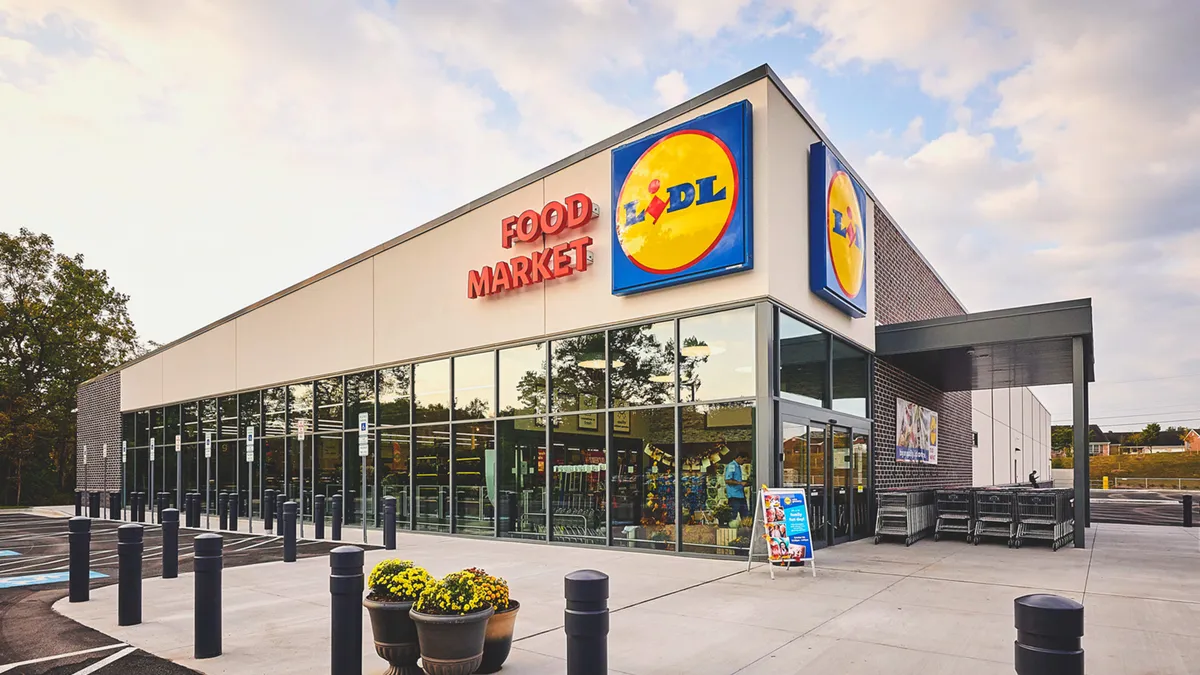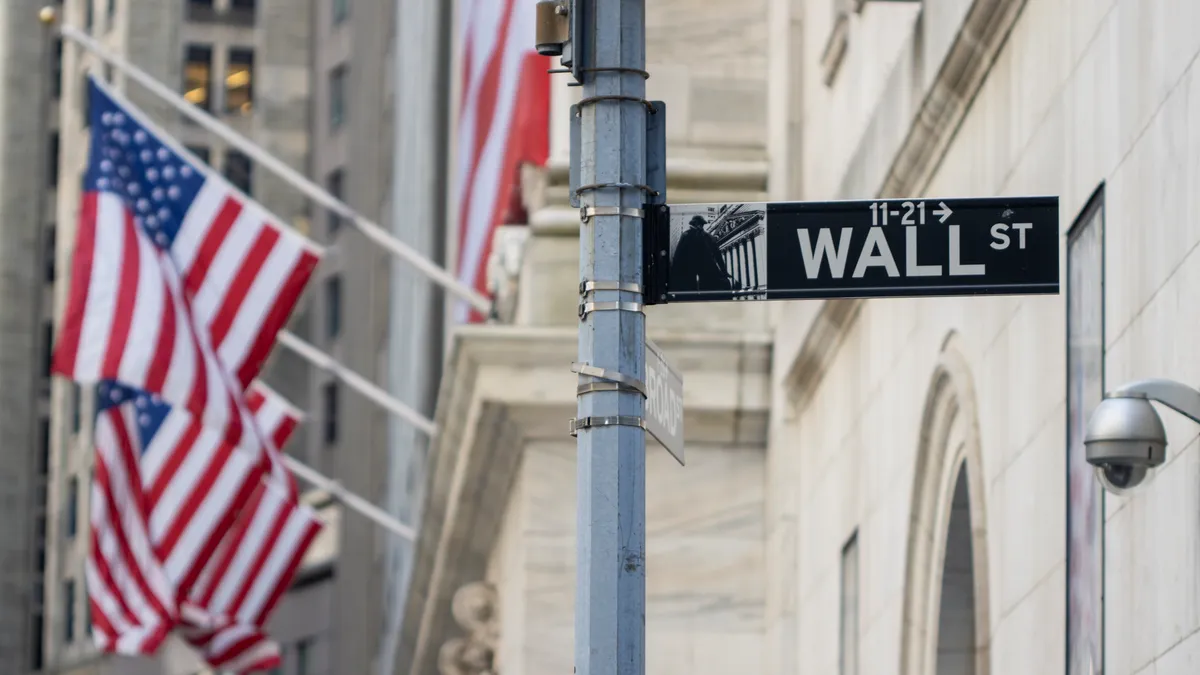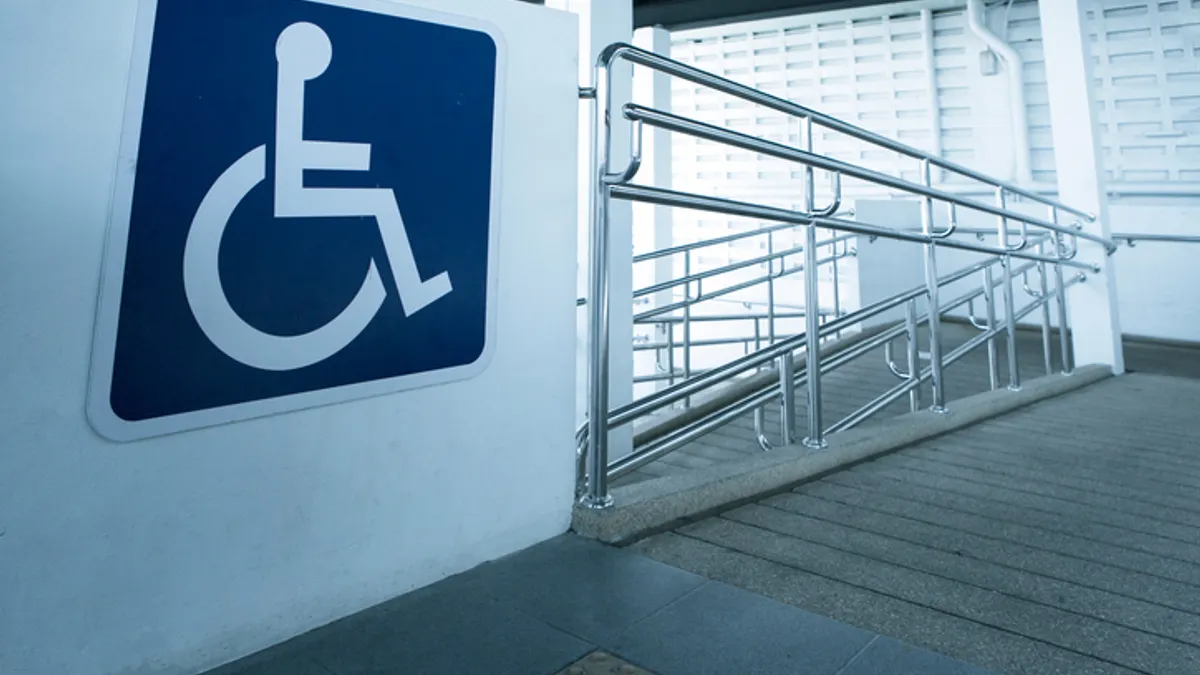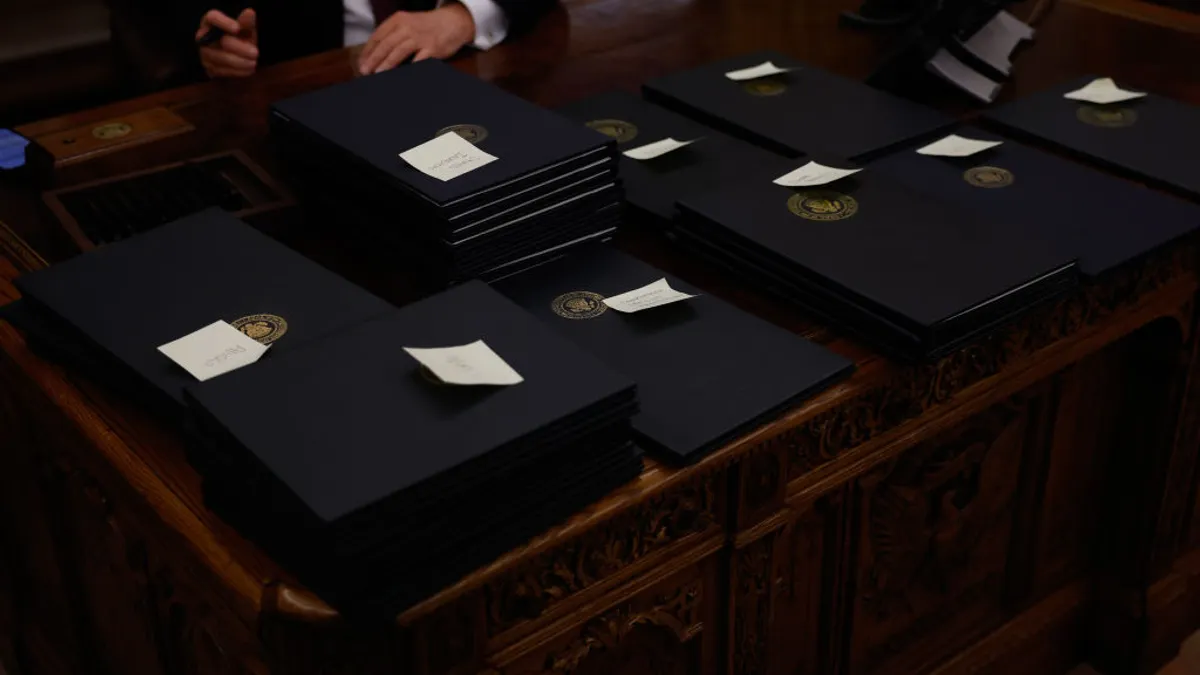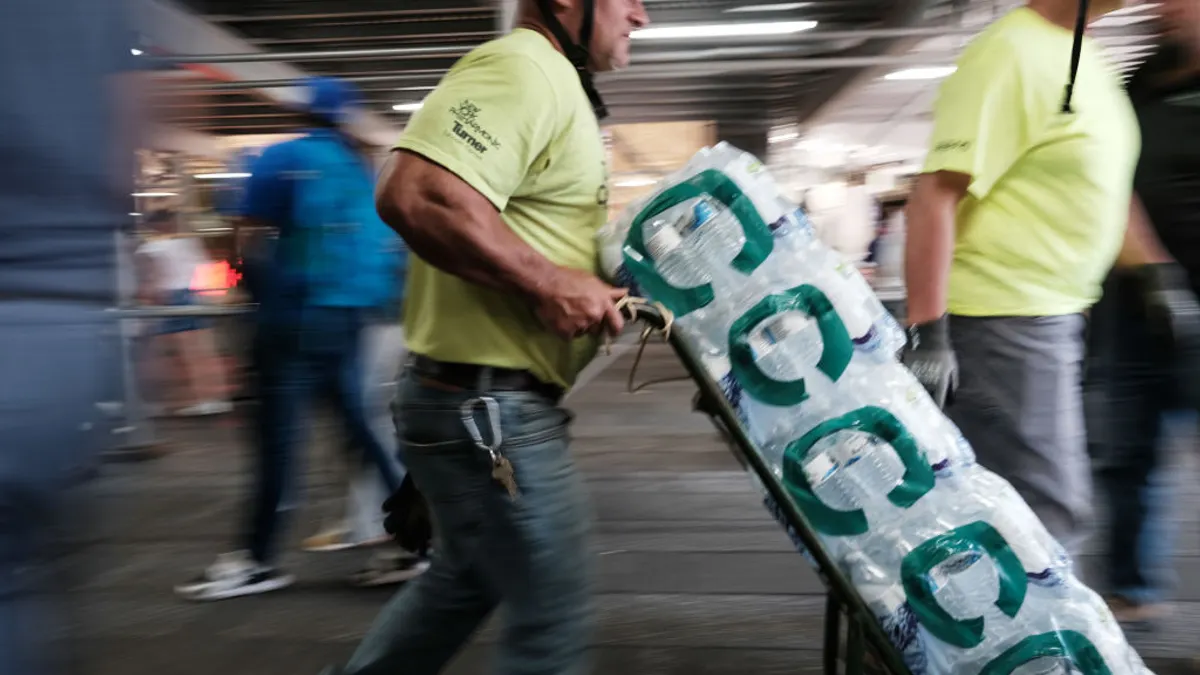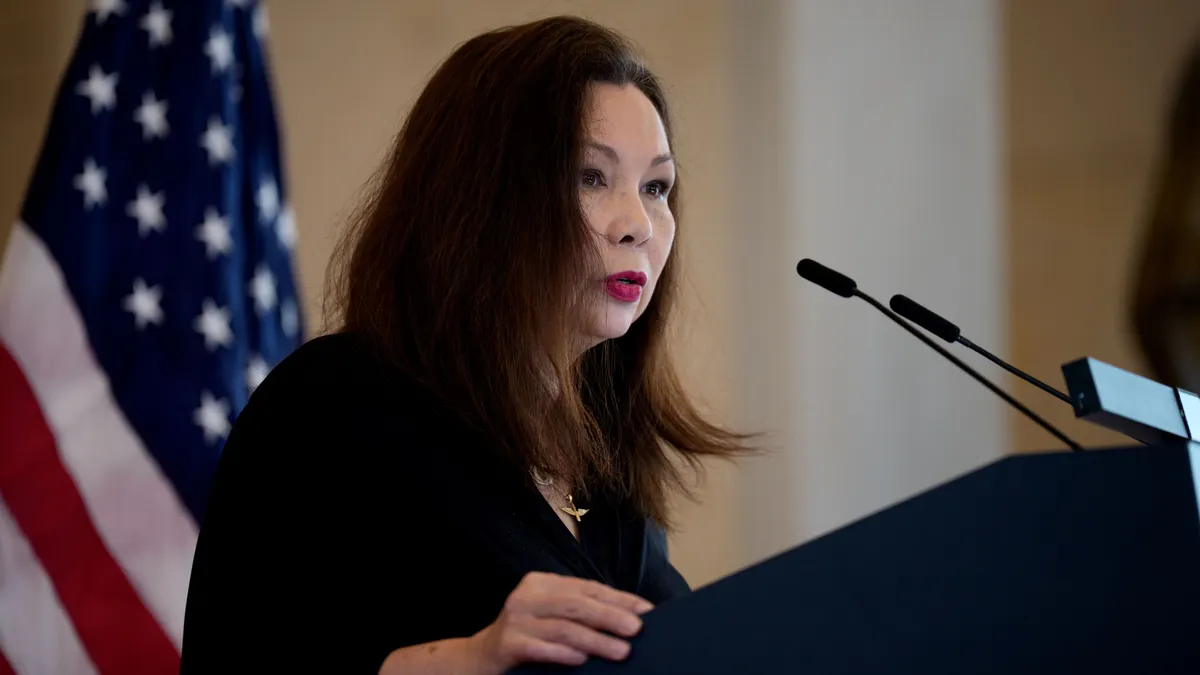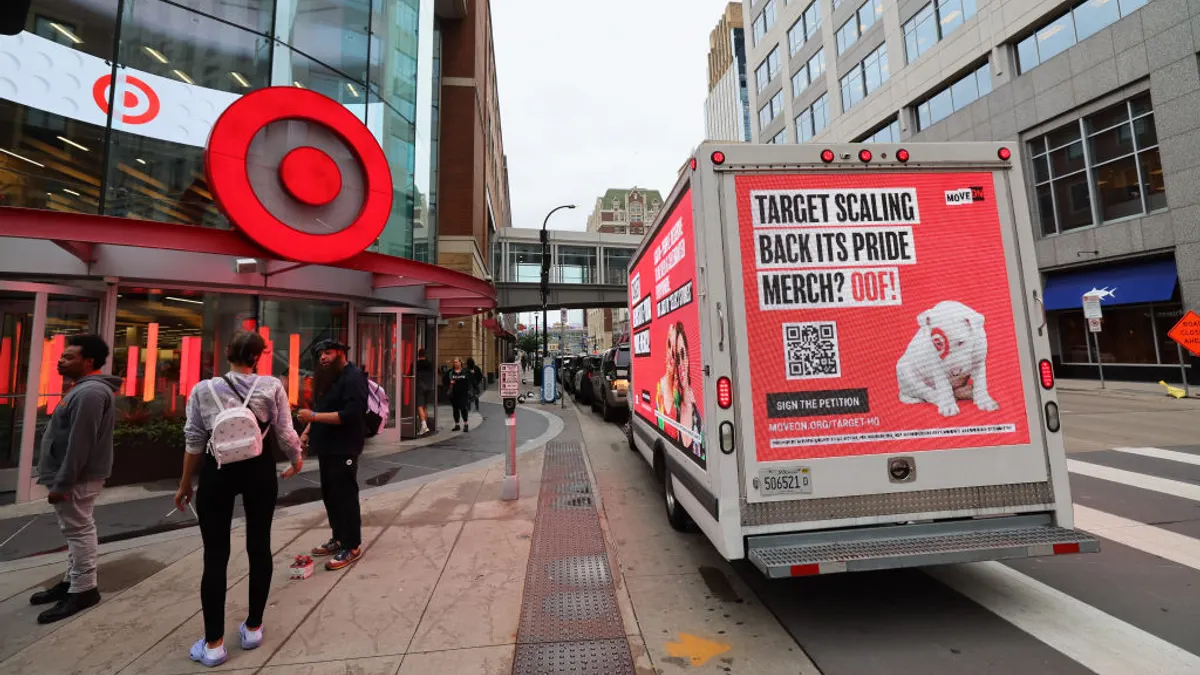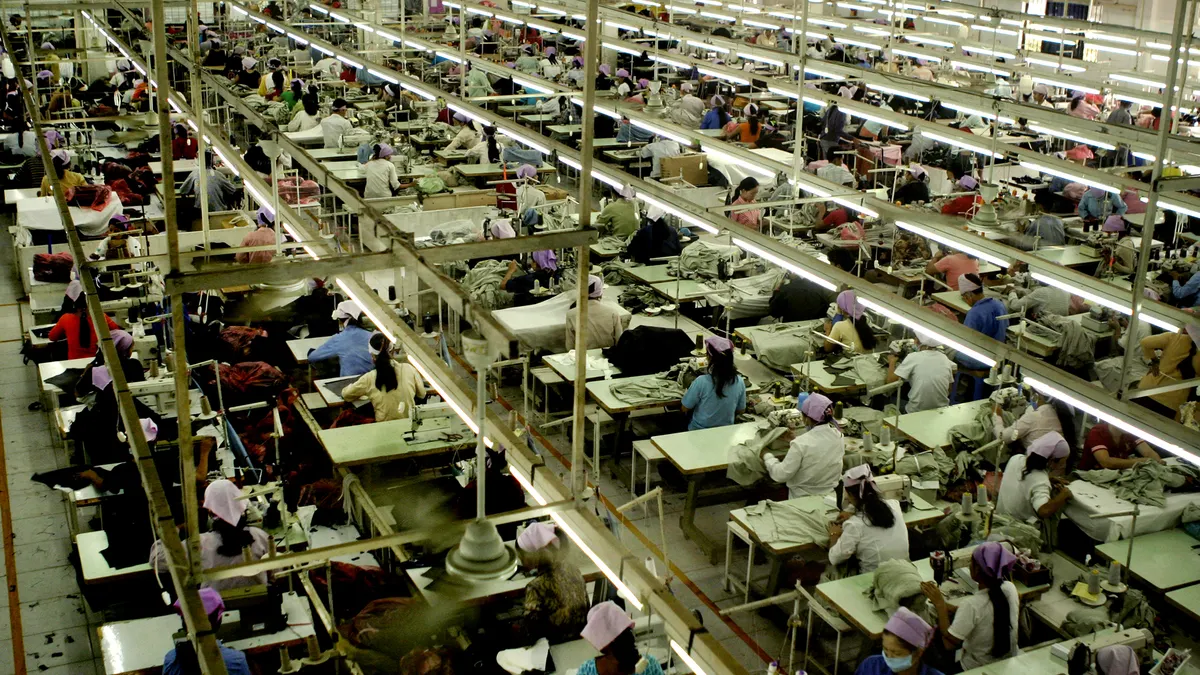Lidl US published its first corporate social responsibility report last week — a report in which the discounter outlined its top 12 goals around five main focus areas.
Among those goals, the company aims to reduce scope 1 and scope 2 greenhouse gas emissions by 70%, compared to a 2019 baseline, by 2030; narrow the Lidl US mean gender pay gap to under 5% by 2030; and transition 30% of its U.S. fleet to new “clean vehicles” by 2035.
Lidl US conducted a materiality assessment to determine the relevance and impacts of specific topics, the report said. Within the company’s corporate affairs division, the head of CSR sets and executes Lidl US’s CSR strategy and reports on the progress to the CEO and board members, who then give final approval for the CSR report.
“At Lidl US, CSR is seen as a strategic business initiative with direct ties to the company’s mission and values,” the company said in the report.
Lidl, which opened its first U.S. store in 2017, shared its progress, goals and planned updates across three themes in the report: Good for our Planet, Good for People and Good for You. The report details recent progress on its sustainability and workforce efforts and lays out plans for new initiatives to further tackle its goals.
Here’s a look at what’s to come, per the report.
Sustainability
The grocer said it’s made “significant progress” on its scope 1 and scope 2 GHG emissions goals, so far achieving a 63% reduction since 2019.
Lidl’s parent company, Schwarz Group, has a goal of reducing its scope 1 and scope 2 emissions by 55% by 2030, compared to 2019.
In working toward its emissions target, Lidl US is focused on procuring renewable energy, making its operations more efficient and using natural refrigerants. Since 2022, Lidl US has procured 100% renewable energy for its electricity by buying renewable energy certificates.
Lidl US said in 2023 it would start using natural product cooling refrigerants at all of its new prototypical stores and distribution centers. By 2026, the company said it will evaluate its portfolio to figure out a way to transition to natural product cooling refrigerants. Already, the company has installed all-natural refrigeration systems at two stores as of the end of its fiscal year 2022.
Currently, Lidl US constantly monitors energy consumption at its stores and, starting next year, will deploy sub-metering at all of its new stores. By 2024, it’s aiming to achieve zero waste, which it defines as “reducing total waste sent to landfill and/or incineration by a minimum of 90%, while putting unavoidable waste to a sustainable use” for the grocer's most northern sales regions as its first zero-waste pilot. Stores in the northern sales regions represent half of Lidl US's overall store network, a spokesperson for the company said.
To reduce food waste, the company currently uses process optimization and demand planning, a discounting program for food approaching its best-before date, donations programs and food waste and organics recycling programs. By 2025, Lidl US wants to have all of its stores and distribution centers participating in its food donation program.
Workforce
Lidl, which currently has more than 6,000 workers supporting its U.S. business, outlined several workforce-focused efforts.
The company has been collecting data on its gender pay gap since 2017 and is working to narrow that gap, per the report.
“Although the principle of pay equality is entrenched at our company, the [gender pay gap] cannot be completely avoided due to structural aspects in the workforce,” the report noted. “Structural aspects include, for example, a higher percentage of women in entry level positions or working part-time, and therefore earning a lower wage.”
The discounter said it plans to have charitable round up campaigns for customers at all of its stores by the end of this year and to launch a diversity, equity and inclusion training for U.S. workers next year. Lidl US also aims to provide 4 million hours of worker training focused on career growth opportunities.
Sourcing
Within the next few years, Lidl US wants to hit several product sourcing goals that it says will give its customers more “good for you” options as well as provide customers with transparent, certified and regionally sourced products, according to the report.
Next year, the company wants to have all of its health and beauty care items that contain palm oil certified by the Roundtable on Sustainable Palm Oil, furthering its efforts to have a more sustainable product range.
In 2025, Lidl US hopes to achieve three private label goals:
- Achieve 100% certified critical raw materials in our private label products
- Have all private label charcoal products meet one of three certification standards: FSC, PEFC or SFI
- Have all private label green, black and rooibos tea certified through Fairtrade International, RFA or USDA Organic
By 2026, the company wants to have 20% of its private label chicken adhere to the ECC Standard, which sets standards around broiler welfare.
The report noted that Lidl US has identified 11 critical raw materials that it wants to set responsible sourcing targets for, but did not specify a timeline for when all of those targets might be set.



